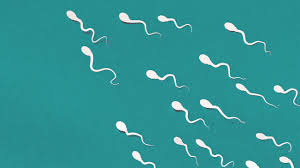
Decline in Sperm Count Among Men: Experts Highlight Key Factors and Solutions
Experts are raising alarm over a noticeable decline in sperm count among men aged 25 to 40, attributing the trend to a combination of lifestyle changes, environmental pollutants, and unhealthy habits. Factors such as poor dietary choices, a lack of physical activity, chronic stress, and addictions are seen as primary contributors to this growing issue. Dr. Sulbha Arora, Clinical Director at Nova IVF Fertility in Mumbai, points out that while aging doesn’t affect sperm count as drastically as it does women's eggs, men are still facing significant challenges related to fertility due to lifestyle and environmental factors.
"Low sperm count, known as oligozoospermia, and the absence of sperm, or azoospermia, are becoming more prevalent. Poor dietary habits, including the consumption of fast food and processed snacks, along with a sedentary lifestyle, are major culprits," Dr. Arora explains. These factors, she notes, not only harm the male reproductive system but also increase the risk of obesity, which in turn exposes the body to harmful chemicals that lower sperm production. Environmental pollutants, such as phthalates and bisphenol-A (BPA), are known to disrupt hormone levels, further degrading sperm quality. Additionally, stress and high cortisol levels have a direct impact on testosterone production, ultimately affecting sperm health.
The decline in sperm count is no longer an issue affecting only women. Dr. Ankita Kaushal, Consultant Fertility & IVF Specialist at Motherhood Fertility & IVF in Navi Mumbai, highlights that men are now facing fertility challenges as well. "There is a troubling decline in sperm count among men in their 20s and 30s, largely due to environmental pollution, poor dietary habits, lack of exercise, and stress. Many men are also exposed to harmful chemicals and toxins that affect their fertility," says Dr. Kaushal. She advises men to embrace a healthier lifestyle, including a nutritious diet, regular exercise, and stress management techniques like yoga and meditation.
To tackle these issues, experts recommend a holistic approach to improving sperm health. Dr. Arora suggests that men adopt a nutrient-rich diet, including antioxidants and healthy fats, by incorporating green leafy vegetables, whole grains, legumes, eggs, walnuts, and pumpkin seeds. Regular physical activity and a focus on mental well-being, through yoga and meditation, are also key strategies. Furthermore, avoiding smoking, excessive alcohol consumption, and substance abuse is crucial. Maintaining an optimal body mass index (BMI) and ensuring adequate sleep of 8-9 hours each night can also significantly improve sperm count and semen quality.
In conclusion, experts stress the importance of men paying attention to their reproductive health as much as women do. A balanced diet, regular exercise, stress management, and lifestyle changes are essential for maintaining healthy sperm count and improving fertility. For those struggling with fertility issues, consulting a fertility specialist is crucial for personalized treatment plans and guidance.